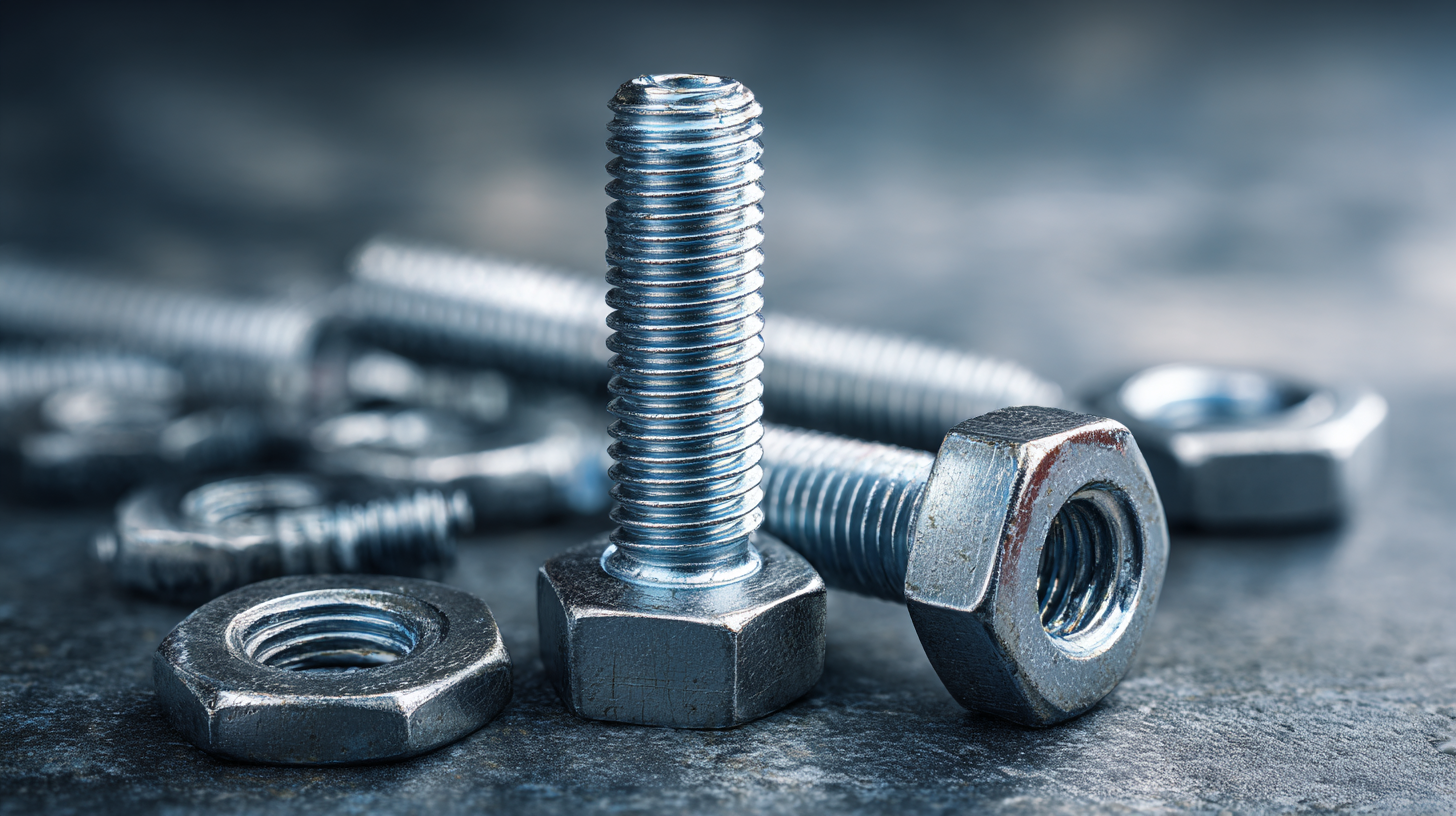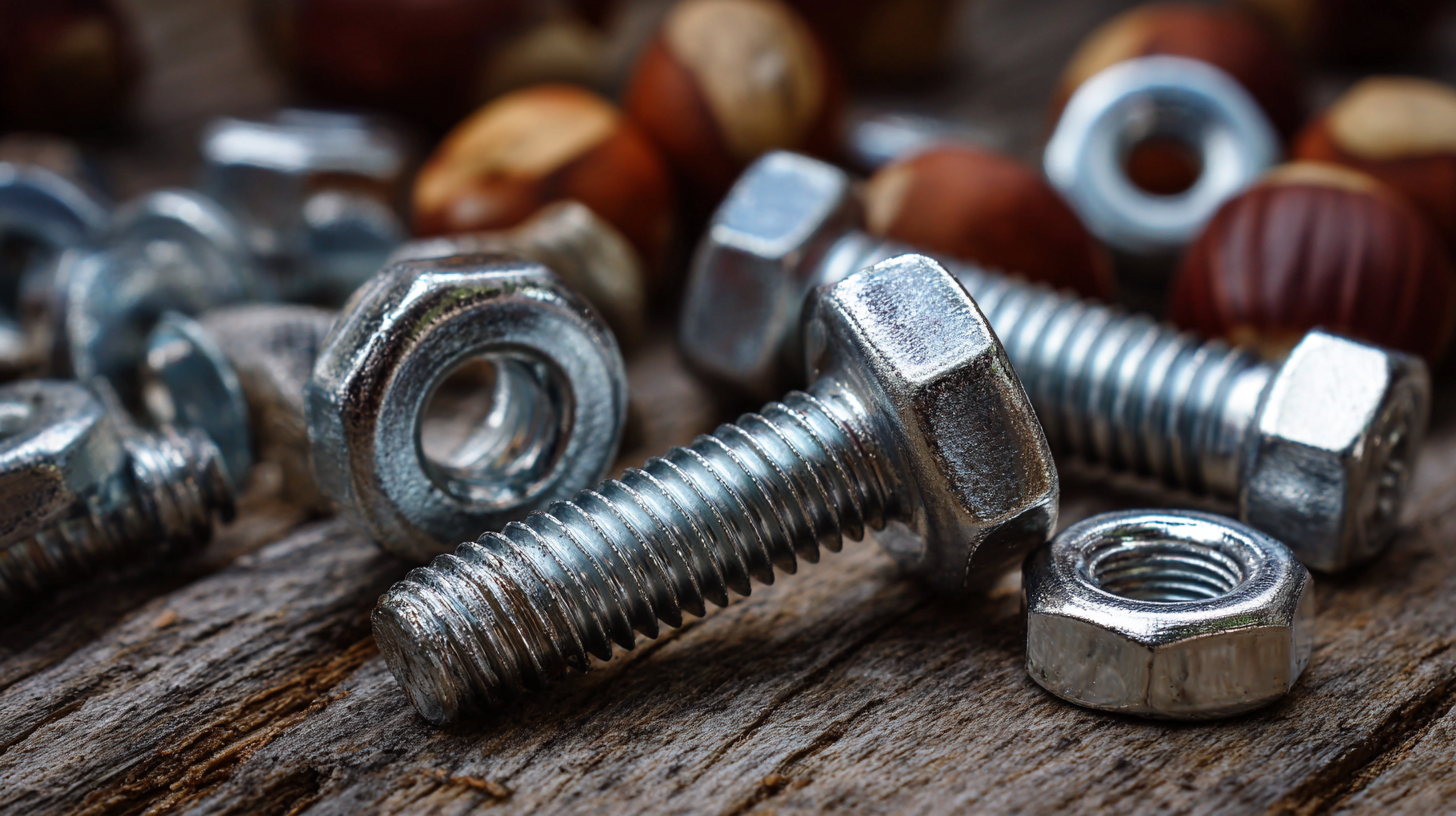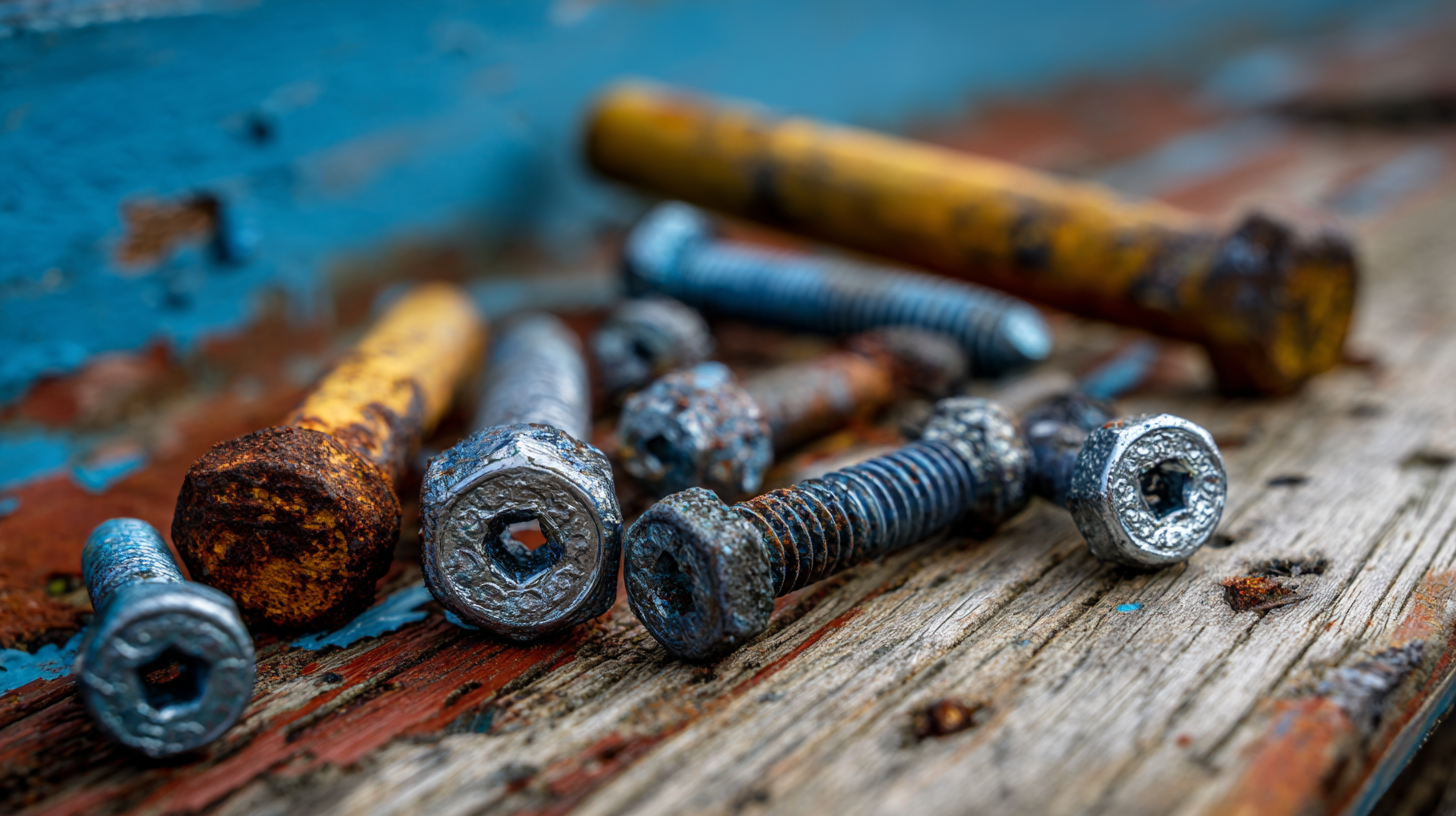Inquiry
Form loading...
In the marine industry, the selection of appropriate marine fasteners is critical for ensuring safety, durability, and optimal performance. According to a report by Market Research Future, the marine fastener market is projected to grow at a CAGR of 4.2% over the next five years, underscoring the increasing demand for high-quality fastening solutions in shipbuilding and maintenance.

These fasteners must withstand harsh marine conditions, including saltwater corrosion and extreme weather, thus making their selection a focal point for marine engineers and builders. Incorporating the right marine fasteners not only enhances the structural integrity of vessels but also contributes to overall operational efficiency.
In this blog, we will explore the 15 best marine fasteners you need to know, providing insights into their applications, benefits, and how they can significantly improve performance in marine environments.
When choosing marine fasteners, the qualities that define their durability and performance are crucial for ensuring a safe and efficient maritime environment. First and foremost, resistance to corrosion is paramount. Marine environments are often harsh, with exposure to saltwater, humidity, and varying temperatures. Fasteners made from materials such as stainless steel, specifically grades 316 or 304, provide excellent protection against rust and pitting, thereby extending the lifespan of your marine hardware.
Additionally, the strength and tensile load capacity of fasteners should not be overlooked. They must be able to withstand high stress and dynamic loads while maintaining structural integrity under harsh conditions. Look for fasteners that meet or exceed industry standards for tensile strength, as well as those that can endure shock and vibration without loosening. Furthermore, consider fasteners with coatings or treatments designed for marine applications, offering an extra layer of protection without compromising performance. This ensures optimal functionality and reliability, crucial for the safety and longevity of marine vessels and their components.
When it comes to marine applications, selecting the right fasteners is crucial for maintaining integrity and safety in harsh environments. Corrosion is a significant concern due to exposure to saltwater, humidity, and varying temperatures. According to a study by the National Association of Corrosion Engineers (NACE), corrosion-related failures account for approximately $276 billion in costs annually in the U.S. alone. Thus, utilizing materials that resist corrosion can drastically extend the lifespan of marine structures and vessels.
The top five corrosion-resistant materials for marine fasteners include stainless steel, titanium, aluminum, bronze, and nylon. Stainless steel, particularly grades 316 and 304, is widely favored for its excellent corrosion resistance and tensile strength. Titanium, while costlier, offers superior resistance to pitting and crevice corrosion, making it ideal for high-performance applications. Aluminum fasteners, especially when coated, can provide lightweight options with good resistance to saltwater. Bronze is traditionally used in marine settings due to its resistance to seawater corrosion and excellent durability. Lastly, nylon fasteners, while not metal-based, serve as a non-conductive, corrosion-resistant alternative for specific applications where metal fasteners might be prone to galvanic corrosion. By selecting these high-performing materials, marine engineers can ensure optimal performance and longevity for their projects.
When navigating challenging marine environments, the importance of reliable fasteners cannot be overstated. Innovative fastening solutions are designed to withstand the rigors of saltwater exposure, temperature fluctuations, and intense pressure. Choosing the right materials, such as stainless steel or corrosion-resistant alloys, ensures longevity and optimal performance for various applications, from securing components on yachts to maintaining commercial vessels.
Tip: Always consider the specific environmental conditions your fasteners will face. For instance, using fasteners with higher tensile strength can prevent failure during extreme weather. Additionally, incorporating lock washers can help maintain joint integrity, crucial for preventing loosening due to vibration and movement.
Marine fasteners should not only be durable but also easy to install and maintain. Utilizing self-tapping screws and specialized anchors can streamline the installation process and reduce labor costs. Regular inspections and maintenance of fasteners can help identify wear and corrosion early, preserving the safety and functionality of your marine equipment.
Tip: Keep a selection of marine-grade fasteners on hand that are suitable for different substrates, such as fiberglass and wood. This preparation allows for quick repairs and modifications, ensuring your maritime activities run smoothly.
When it comes to marine fasteners, proper installation and maintenance are crucial for ensuring optimal performance and longevity in harsh marine environments. According to a report by the International Marine Certification Institute, nearly 30% of mechanical failures in marine applications are attributed to inadequate fastening techniques. To avoid these pitfalls, it is essential to pay close attention to the material selection and corrosion resistance of fasteners, as well as adhering to best installation practices.
One best practice is to utilize stainless steel fasteners with a high nickel content, which can significantly enhance their corrosion resistance. Studies show that fasteners made from 316-grade stainless steel can withstand more than 2,000 hours of salt spray exposure without significant degradation. Additionally, employing the correct torque specifications during installation ensures that fasteners are neither over-tightened nor under-tightened, reducing the risk of material failure. Regular inspections, ideally bi-annually, should be conducted to identify any signs of wear or corrosion early on, thus prolonging the lifespan of your marine hardware. By adhering to these best practices, vessel owners can ensure their marine fasteners perform optimally, reducing downtime and maintenance costs.

When selecting marine fasteners, it's crucial to consider the specific environmental conditions your equipment will face. According to a report by the Journal of Marine Engineering, nearly 75% of fastener failures in marine applications stem from inadequate material selection for corrosion resistance. Stainless steel fasteners, particularly those coated with titanium, offer superior longevity, resisting the harsh effects of saltwater and harsh weather conditions. This is essential in ensuring your vessel maintains operational integrity while reducing maintenance costs.

Another factor to consider is load capacity and application requirements. The Marine Fasteners Association reports that improperly sized fasteners can lead to assembly failures, impacting safety and operational efficiency. Assessing the tensile strength and shear resistance of a fastener based on the specific loads it will encounter is paramount. Moreover, choosing fasteners with appropriate thread types and coatings can provide enhanced grip and prevent loosening, ensuring optimal performance in even the toughest marine environments.
